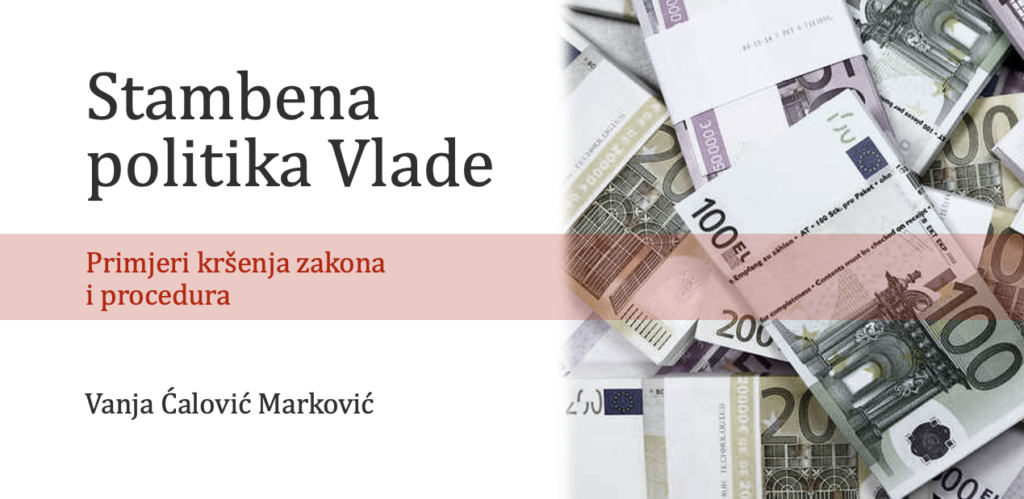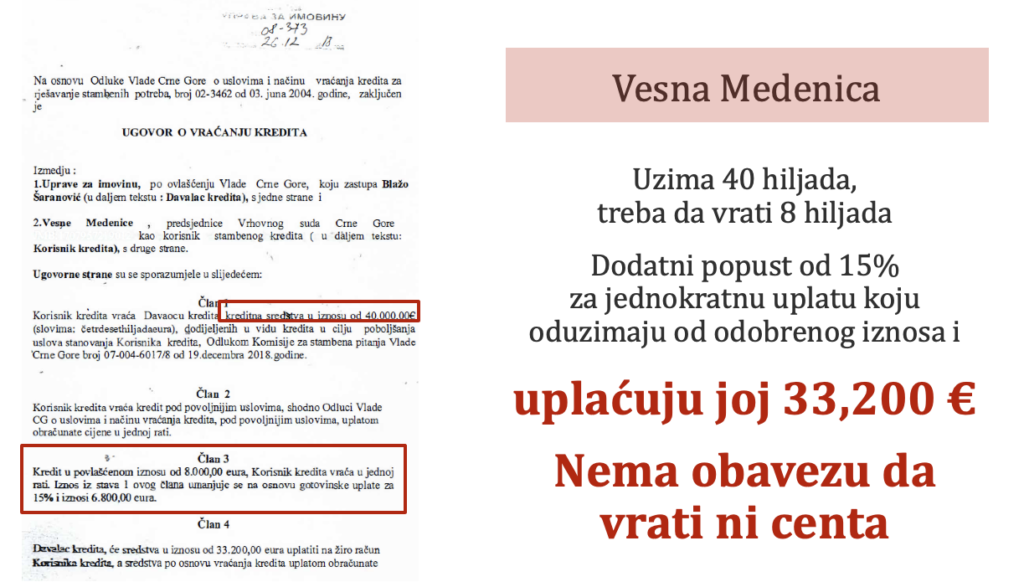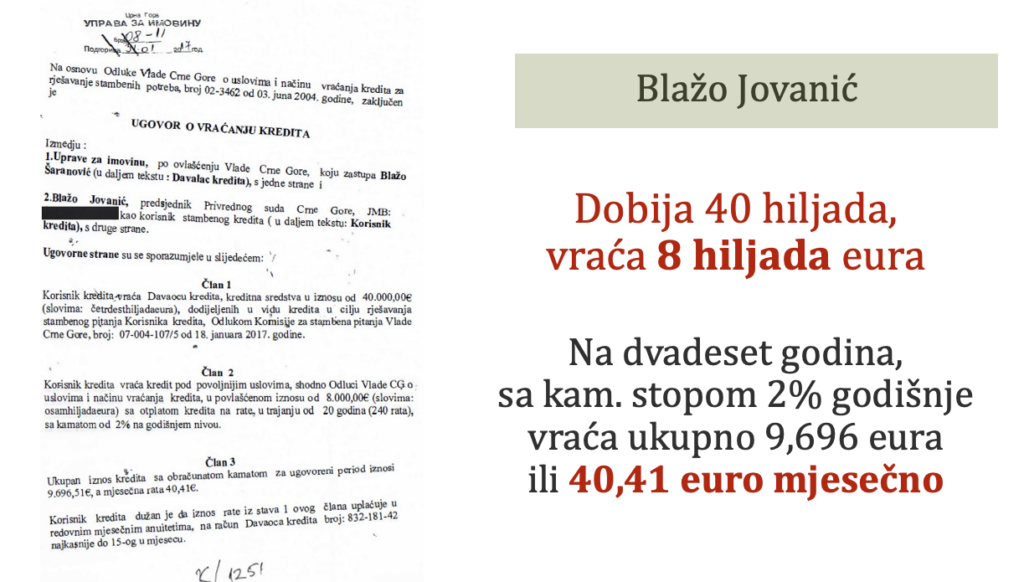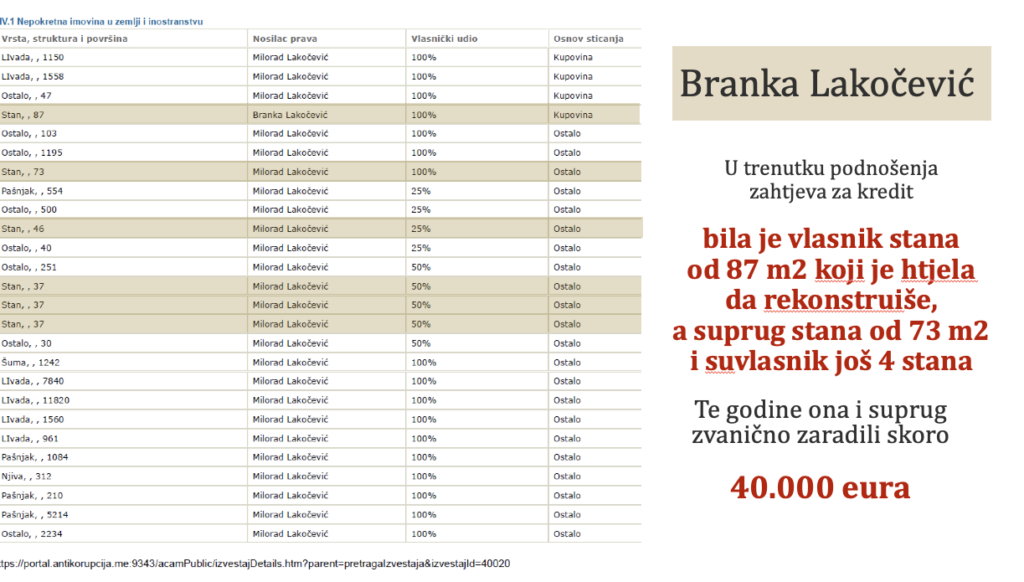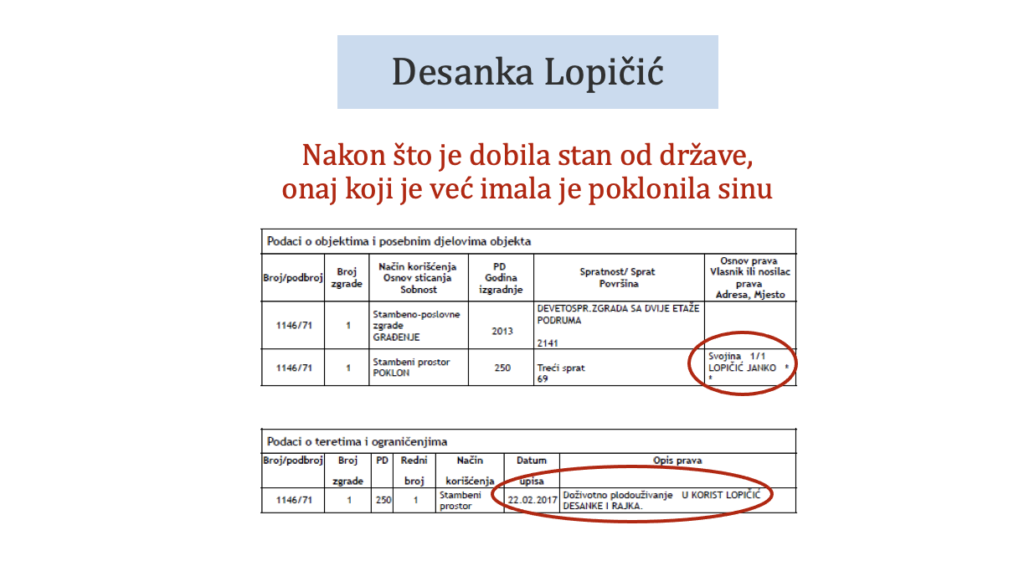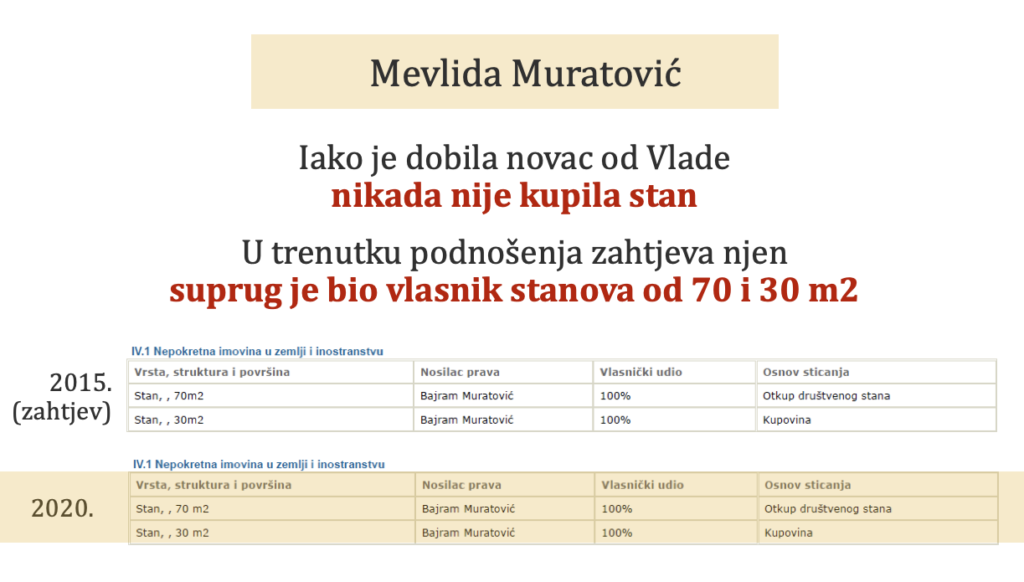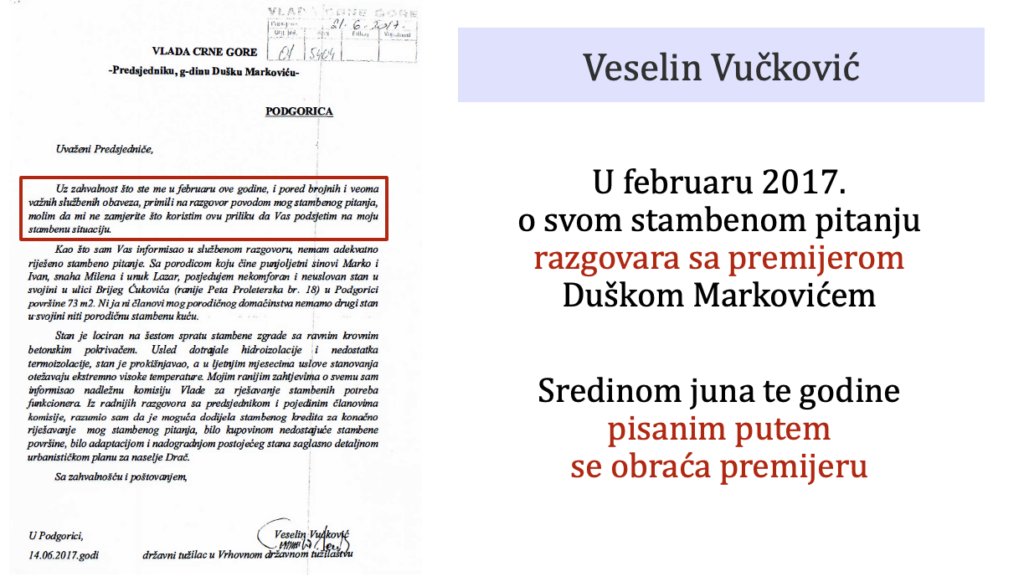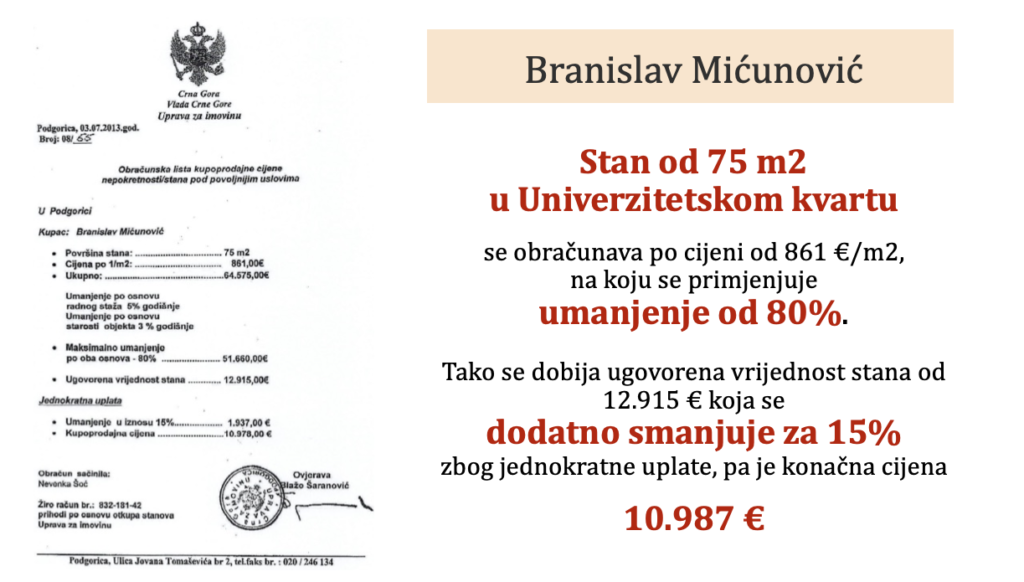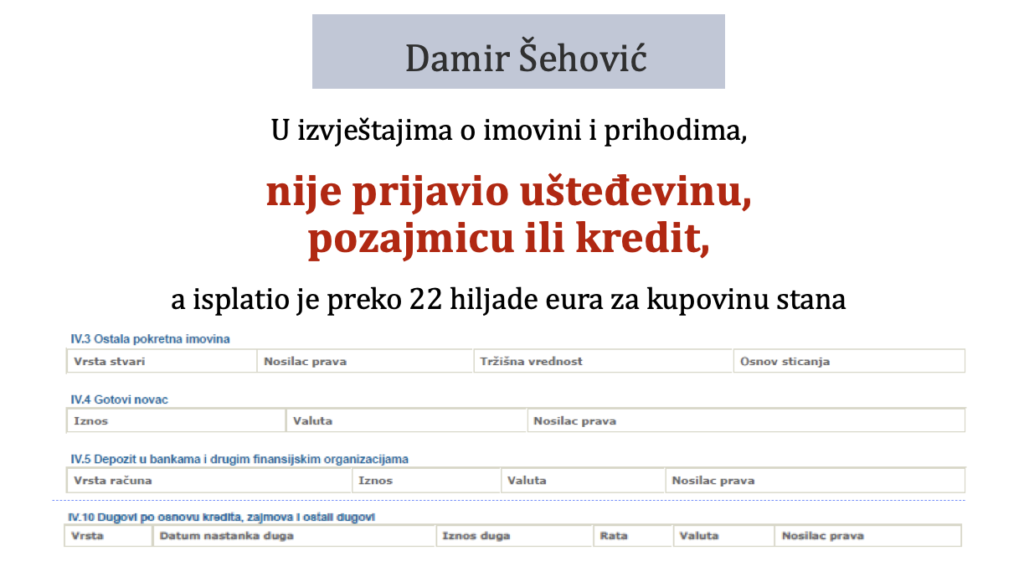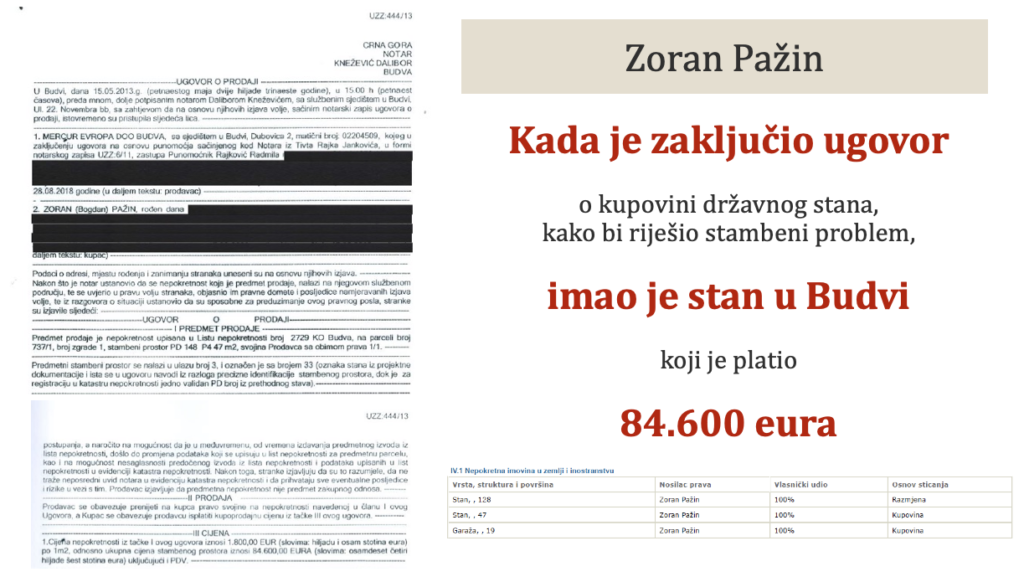At least 175 public officials received aid in resolving the housing issue, for which around 25 million euros was spent. This was announced today at the press conference of the National Council for the Fight against High-Level Corruption.
Vanja Ćalović Marković, the head of the expert team of the National Council for the Fight against High-Level Corruption, said that the archive concerning the allocation of housing loans and apartments under favourable conditions was largely destroyed.
Ćalović Marković said that they reconstructed the archive with the support of the notaries, the Ministry of Defence, the Protector of Property and Legal Interest and the Secretariat-General of the Government.
She said that at least 175 officials, out of a total of 580, received aid in this way. Around 25 million euros was distributed to them. According to Ćalović Marković, the commission granted housing loans to public officials without advertising.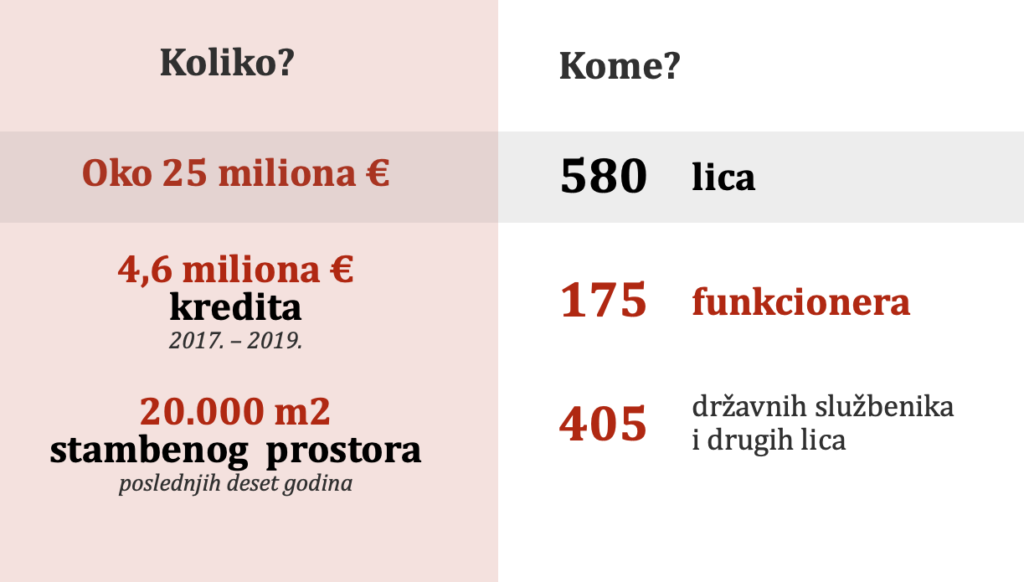
Apartments to judges and prosecutors are allocated by special acts, she pointed out. The Judicial Council did so in 2014, and the Prosecutorial Council two years later.
Ćalović Marković pointed out the example of the President of the Supreme Court, Vesna Medenica, who asked the Government for help, stating that she had never asked for a loan before. She stated that Medenica should have known that there was a rulebook of the Judicial Council which refers to the granting of a housing loan. Medenica has a loan of 40,000, of which she has to repay 8,000 euros. A 15% discount was included in that.
“She was not obliged to repay a single dime,” Ćalović Marković said.
MANS’ Director stated that Medenica knowingly, contrary to the regulations, asked for help from the Government’s Housing Commission.
She further gave the example of the President of the Commercial Court, Blažo Jovanić. Two months later, the government allocated 40,000 euros to him, and he is obliged to repay 8,000 euros.
Branka Lakočević, President of the Administrative Court, received 40,000 euros, and is also repaying 8,000 euros. She already had one apartment at the time, as well as her husband, and she co-owns four other apartments as well.
The President of the Constitutional Court, Dragoljub Drašković, stated that he did not own an apartment in Podgorica, thus, he had to commute from Nikšić. In the request, he states that he is entitled to a large apartment. He got an apartment of 109 m2. He already has a 110 m2 house in Niksić and a 52 m2 apartment in Niksić, Ćalović Marković said.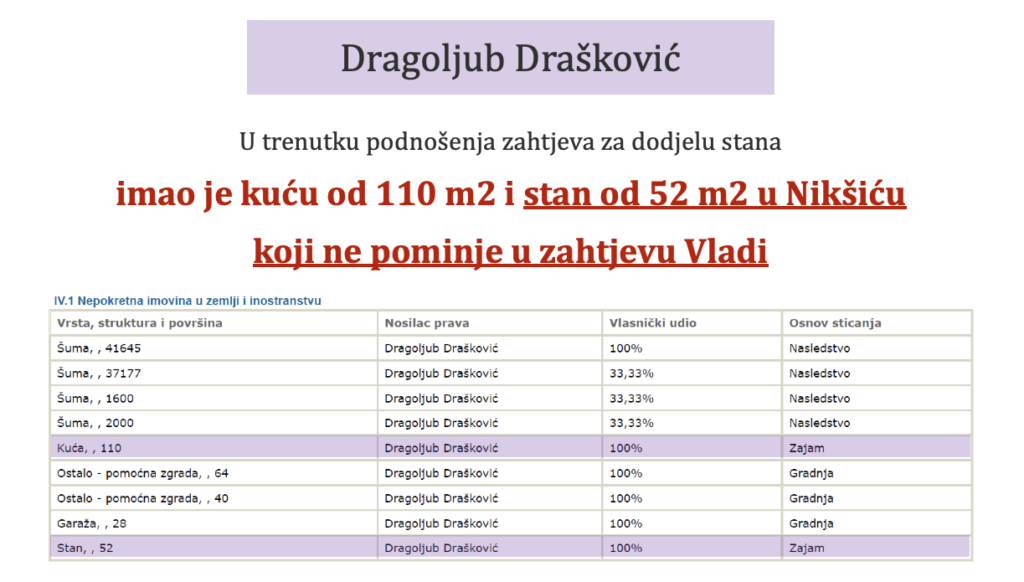
She stated that Desanka Lopičić also received aid in the form of a 75 m2 apartment, although she already had several real estates with her husband, including business premises at that moment.
Mevlida Muratović, a judge of the Constitutional Court, received 40,000 euros and never bought an apartment, while her husband already had two apartments.
Special Prosecutor Saša Čađenović, for whom the apartment was requested by the Chief Special Prosecutor Milivoje Katnić, received the apartment from the Government Commission. He did not like the apartment because its terrace was too big, so he requested another one.
“The Government gave him a new apartment of 89 m2 by a secret decision,” Ćalović Marković stated. He got the apartment for 15,326 euros.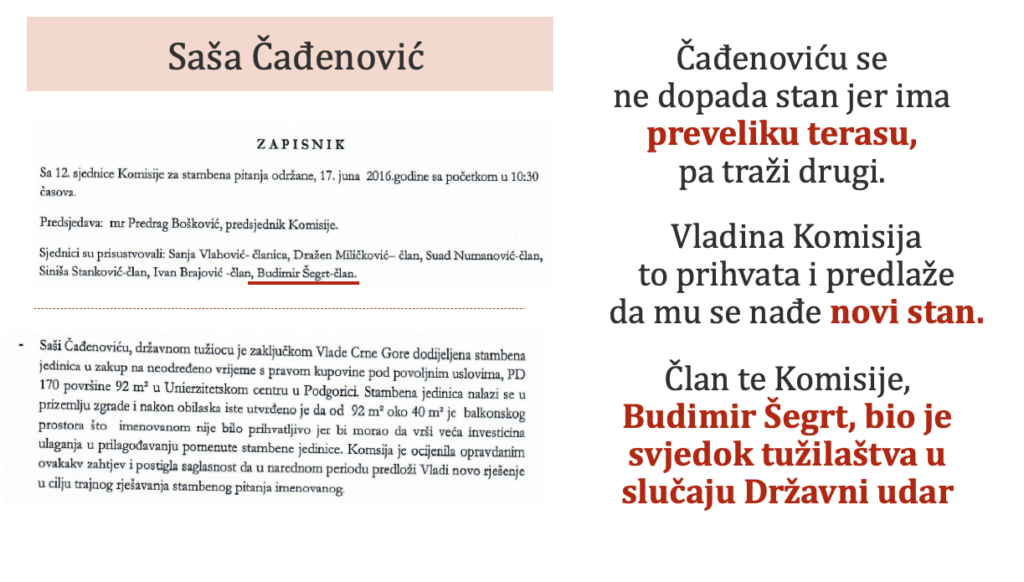
Veselin Vučković, the prosecutor of the Supreme State Prosecutor’s Office, met with Prime Minister Duško Marković, and received a loan.
Lidija Vukčević, the prosecutor of the Special Prosecutor’s Office, was given a 75m2 apartment, although she lives alone.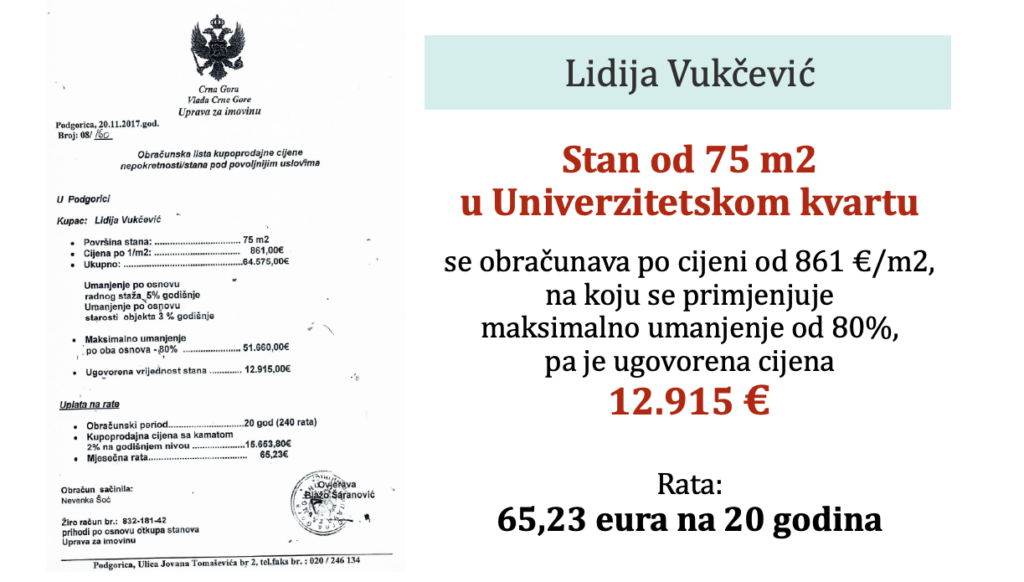
The Minister of Culture, Branislav Mićunović, received an apartment of 75 square meters as a working space for artistic creation while he already had an apartment of 187 m2, and his wife owned a business premises of 222 m2, the head of MANS said. He received a discount of 15 %, so he got a 75 m2 apartment for less than 11,000 euros. He has had it since 2013, but reported it a few years later.
Ćalović Marković also gave the example of the former Minister of Education Damir Šehović, who received an apartment of 89 m2, and with a discount, he got an apartment for around 23,000 euros. Ćalović Marković states that at that time he listed neither savings nor a loan in his property card, which would explain how he paid for the apartment at once.
Zoran Pažin replaced an apartment of 73 m2 for an apartment of over 128 m2. He already had an apartment in Budva that he had paid 84,600 euros, while he did not have the money to solve the housing issue in Podgorica, she pointed out.
She pointed out that the value of old apartments is overestimated, and the new ones are given below the price.
In September, after the elections, the Government granted housing aid in a technical mandate to more than 100 civil servants.
Ćalović Marković said that it was understandable why the Chief Special Prosecutor Milivoje Katnić rejected the criminal charges for housing issues.
She added that they recommend to the Government to find experts who would make sure to correct numerous injustices in this regard, but that they would wait for the new State Prosecutor’s Office to submit the documentation.
Deputy Prime Minister Dritan Abazović said that these cases were only a segment of what was happening with the allocation of apartments and housing loans.
“I am not against the state having that social component, but this is classic corruption,” he said.
Asked whether the Government would continue the practice of allocating apartments and loans to public officials, Abazovic said it would not.
“There is no need for that,” he said. “The state’s ambition is to protect the state budget.” All costs, he said, have been reduced to an operating minimum.
Ćalović Marković said that the current Government should not allocate apartments and loans according to the current rulebook.
“Such housing policy must not be continued,” she said.
She stated that the doctors were conditioned to work in the civil service, while public officials could get an apartment and leave the office immediately.
Asked whether the justice would be awaited for a long time, stating that the aid was distributed to people in positions in the judiciary, Ćalović Marković said that justice consists of two components. One is to compensate the state, and the other is to prosecute those responsible for such decisions.
According to her, that there is plenty of time to determine criminal responsibility, and that some other prosecutor would not reject the criminal charges.
The presentation with complete data presented can be downloaded here.

